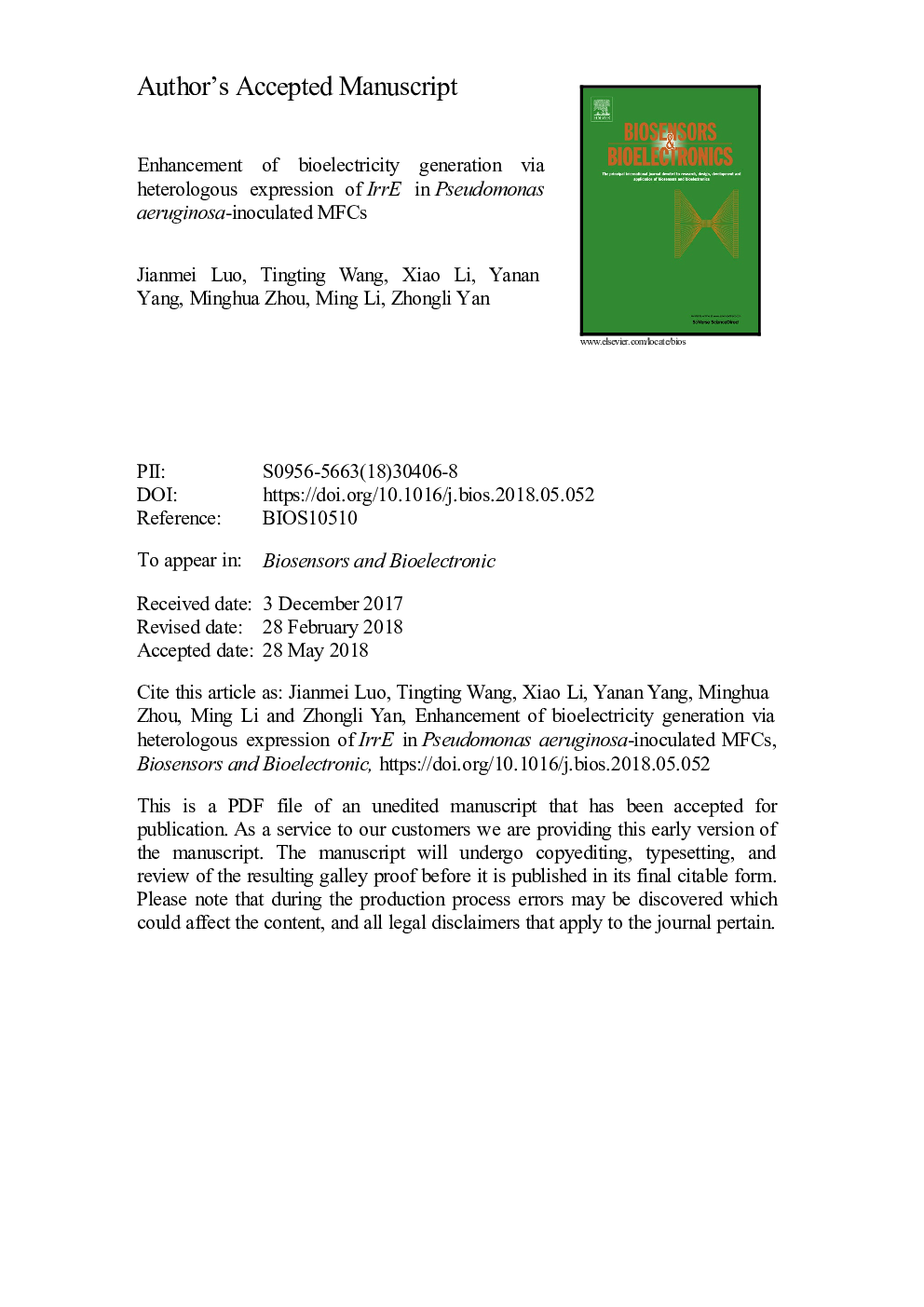| Article ID | Journal | Published Year | Pages | File Type |
|---|---|---|---|---|
| 7228980 | Biosensors and Bioelectronics | 2018 | 36 Pages |
Abstract
Low electricity power output (EPT) is still the main bottleneck limited the industrial application of microbial fuel cells (MFCs). Herein, EPT enhancement by introducing an exogenous global regulator IrrE derived from Deinococcus radiodurans into electrochemically active bacteria (EAB) was explored using Pseudomonas aeruginosa PAO1 as a model strain, achieving a power density 71% higher than that of the control strain. Moreover, IrrE-expressing strain exhibited a remarkable increase in the total amount of electron shuttles (majorly phenazines compounds) and a little decrease in internal resistance, which should underlie the enhancement in extracellular electron transfer (EET) efficiency and EPT. Strikingly, IrrE significantly affected substrate utilization profiling, improved cell growth characterization and cell tolerance to various stresses. Further quantitative RT-PCR analysis revealed that IrrE led to many differentially expressed genes, which were responsible for phenazines core biosynthesis, biofilm formation, QS systems, transcriptional regulation, glucose metabolism and general stress response. The results substantiated that targeting cellular regulatory network by the introduction of exogenous global regulators could be a facile and promising approach for the enhancement of bioelectricity generation and cell multiple phenotypes, and thus would be of great potential application in the practical MFCs.
Keywords
Related Topics
Physical Sciences and Engineering
Chemistry
Analytical Chemistry
Authors
Jianmei Luo, Tingting Wang, Xiao Li, Yanan Yang, Minghua Zhou, Ming Li, Zhongli Yan,
